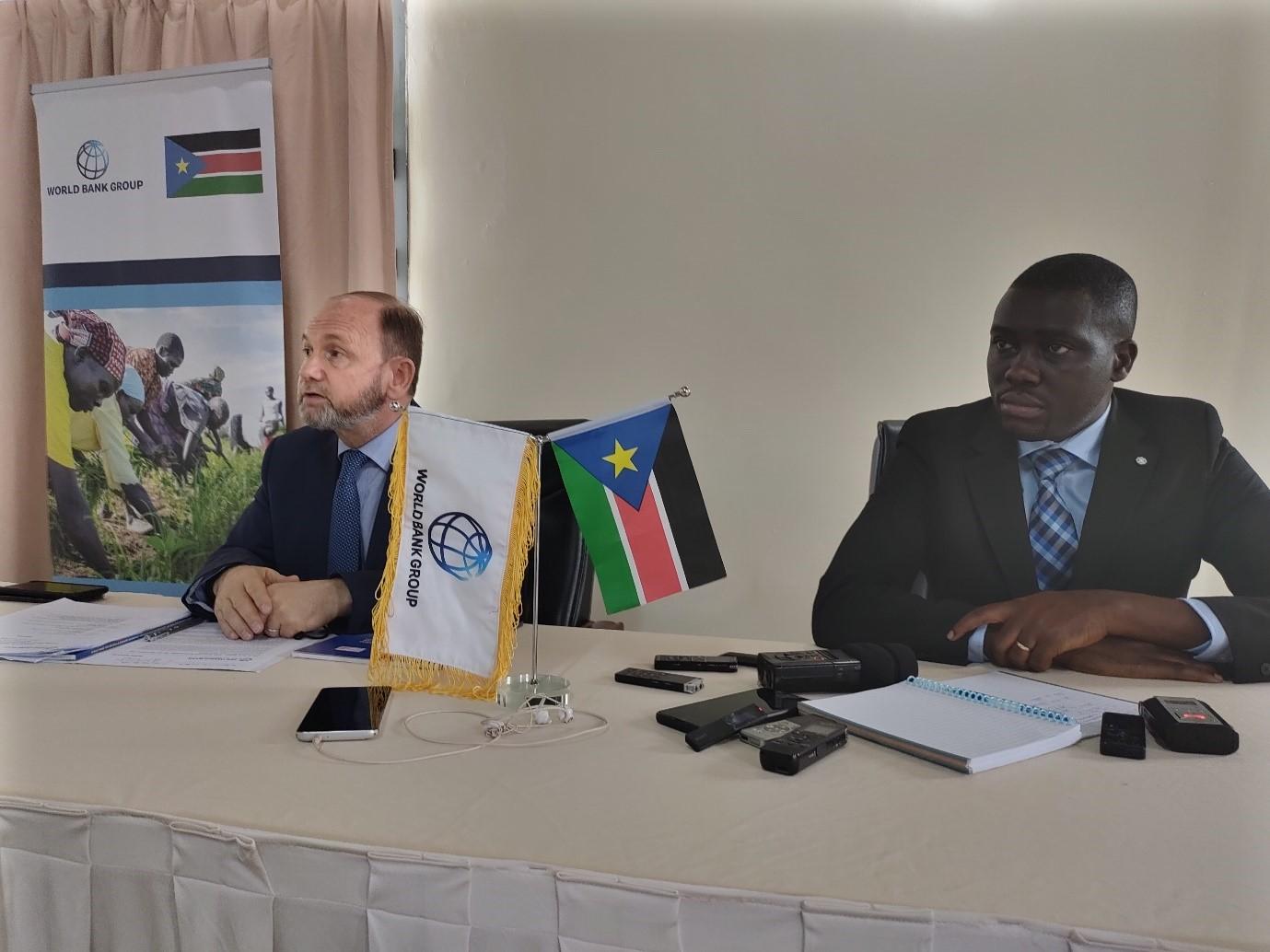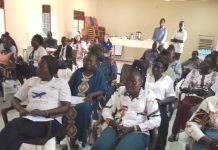Africa-Press – South-Sudan. The World Bank’s latest study shows South Sudan faced a substantial economic headwind between 2020 and 2021.
In the analysis for South Sudan published on Wednesday, the economic recovery has stalled in the country amid a multitude of crises, including the COVID-19 pandemic, climate shocks and dwindling oil production, and most recently, the adverse effect of the broad-based rise in commodity prices brought on by the war in Ukraine.
The country’s Gross Development Product (GDP) Growth fell from 9.5 per cent in fiscal year 2019/2020 to -5.1 percent in fiscal year 2020/2021.
GDP measures the monetary value of final goods and services—that is, those that are bought by the final user—produced in a country in a given period of time (say a quarter or a year), thus is the most commonly used measure for the size of an economy.
Non-oil income collection was 0.8 per cent in fiscal year 2019/2020 and -8.0 per cent in fiscal year 2020/2021, while oil production was 27.5 per cent in fiscal year 2019/2020 and -0.3 per cent in 2020/2021.
Oil and agriculture can help South Sudan recover quickly if there is peace and accountability. South Sudan’s latest World Bank economic report, “Directions for Reforms: A Country Economic Memorandum for Recovery and Resilience,” released yesterday, emphasizes the need for the country to use its natural capital in the agriculture and oil sectors to promote recovery and resilience.
South Sudan’s economy is dominated by oil and agriculture, with oil accounting for 90 per cent of revenue and practically all exports, while agriculture remains the principal source of subsistence for more than four out of five people, according to the bank.
Oil yield decline
However, the report indicated that ‘‘governance issues such as misappropriation of oil income aided by opacity and a lack of accountability in the sector have reduced the potential profits from oil.’’ At the same time, food security has deteriorated steadily since independence, with several subnational jurisdictions approaching crisis levels, according to the research.
As a result, the GDP was expected to shrink by 14 per cent in fiscal year 2020/2021. The oil sector shrank by 0.3 percent as the COVID0-19 pandemic postponed new investments, and oil production fell owing to floods, aging oil wells, and a lack of maintenance spending. Flooding caused estimated losses of 38,000 tons of grain and 800,000 animals in the agricultural sector, resulting in a 4 per cent decrease in cereal production.
“Getting South Sudan to realise its potential will require steps aimed at consolidating peace and strengthening institutions, as well as targeted reforms tailored at harnessing South Sudan’s rich natural capital for development impact as first-order prerequisites for inclusive economic recovery,” said Firas Raad, World Bank Country Manager for South Sudan.
Because revenue from farming had already declined for 38 per cent of households and had completely ended for 11 per cent during the COVID-19 pandemic in 2020, these changes had a severe negative impact on household welfare.
South Sudan’s real GDP per capita in 2018 was predicted to be one third of the counterfactual estimate for a non-conflict scenario, according to Joseph Mawejje, World Bank Country Economist for South Sudan.
Maintaining peace, stronger governance, and accountability, along with focused investments to increase the agriculture sector’s resilience and reduce the country’s chronic food insecurity, he said, can be a powerful driver of growth, and South Sudan’s oil resources can drive transformation.
“Looking at the period between 2012 and 2018, the economy has shrined cumulatively by about 65 per cent and that explains the one-third that is left. When we say it is about one-third of the potential. We also see that the economy started recovering from that from 2008 and that was by oil production and development in agricultural sector on two Factors”.
“One, returnees started working bigger pieces of land because of peace dividend but also there are improvement in productivity but then we have seen those shocks including the flooding off course have affected both the agriculture and the oil and we have limited investment coming in the country both in agriculture and in oil”.
“In the last fiscal year, there was a contraction of 5 per cent, and now with oil production falling even further, our projection is that the economy could shrink further by between 0.8 percent and 2.8 percent,” Joseph said, adding that “the economy could shrink further by between 0.8 percent and 2.8 percent.”
“This is just a projection. The actual out turn will depend on what decisions the authorities will make during this year in terms of investment but also how other external factors play out” he said.
South Sudan’s economy is one of the least diversified in the world, with oil accounting for 90 per cent of government revenue and nearly all exports. However, governance issues in the sector are restricting the sector’s ability to improve people’s living standards and contribute to long-term growth, World Bank had said.
For More News And Analysis About South-Sudan Follow Africa-Press






